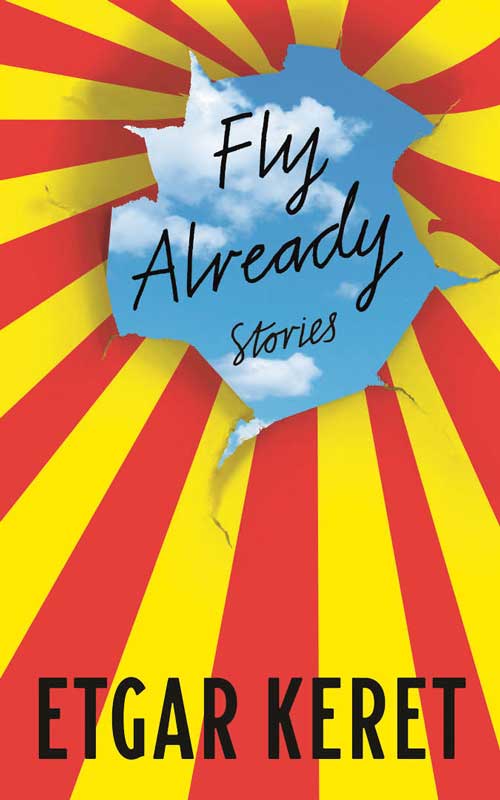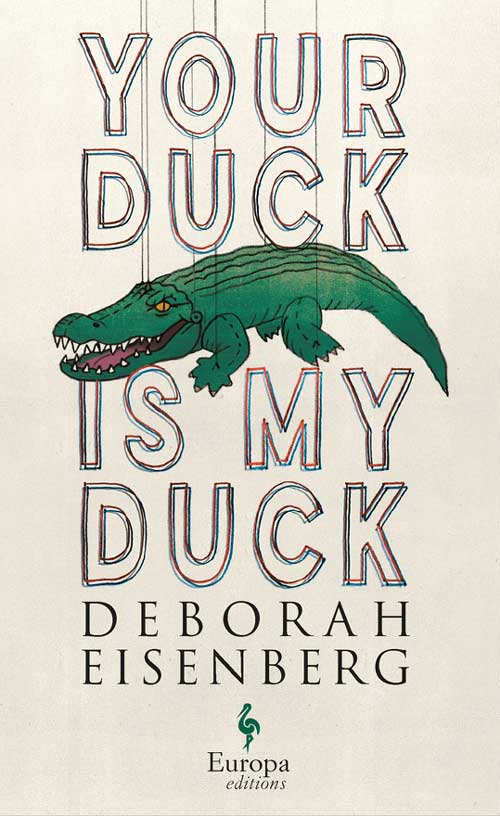Tel Aviv-based Etgar Keret is no household name in the UK. But his short stories, graphic novels and screenplays have been enchanting a growing band of international followers for over 20 years. There aren’t many Israeli authors writing in Hebrew whose work has been translated into almost 50 languages (‘including Farsi!’ the press release for his new collection Fly Already delightedly informs us). But Keret’s conversational style is so irresistible, his dialogue so unpretentious and authentic, his throwaway one-liners so damn funny, it’s hard to imagine any reader with a sense of humour and a curiosity about humankind not being charmed by his work.

Martin Amis once said Henry James was a great writer, but not always a good host. He often took sport in displaying his intellectual superiority, like a brattish MC testing party guests on their knowledge of dinner-table etiquette. Keret is his opposite, a mensch who throws the door open on your approach, shakes you vigorously by the hand and invites you to help yourself to the buffet. His brief, freewheeling stories have a lovely lightness of touch, often threading magic or the supernatural into the everyday as effortlessly as the sun slips through breaks in a cloud. Sometimes he just plays for laughs, and it’s like reading a Mel Brooks stand-up script, complete with faux bafflement and quizzical outreaches to the audience. But there is usually a much deeper, often sadder hinterland to be furrowed.
The titular tale in this book, ‘Fly Already’, is typical of his style. Keret generally eschews rambling scene-setting, preferring to jump straight in to the heart of the action; we begin the story just as a father and his young son notice a man standing on the roof of a building, apparently readying to jump. The father cries to him to stop, the son assumes he’s a superhero and encourages him to fly. In the course of just seven pages, the (unexpected) fate of the would-be suicide unravels, along with some shocking information about the father’s past. Our feelings about the father’s panic at what he’s witnessing shift, our heads and hearts change focus. But Keret doesn’t dwell, he just carries on with the story, so that we only have time to collect at the end.
Other tales are like fleeting flyovers, over in a moment, their impact
sometimes slight, sometimes like an awesome gut-punch. Often it’s hard to know exactly where you are until it’s over. One thing is clear; life, like great writing,
is full of surprises.

New Yorker Deborah Eisenberg isn’t as breezy and immediately welcoming as Keret, but her own short stories offer rewards for the reader willing to wait a little longer for their hit. Her prestigious reputation in America is spreading, and her new, intriguingly titled collection, Your Duck is My Duck, should cement it here. Eisenberg takes her time creating her environment (usually that of the dysfunctional self-indulgent American upper middle-class), revealing her characters’ motivations gradually, then ducking suddenly into unforeseen alleyways.
Unlike our aforementioned less-than-gracious host however, she is never intimidating or exclusive. Rather, with a combination of rich characterisation, thrilling unpredictability and quite beautiful multi-layered prose, she pulls us in like carp on the trail of a tiger nut. There are touches of Jay McInerney and Jonathan Dee in her observations of her privileged countrymen, but rest assured, her unique, intelligent and sensory-aware vision underpins every episode in this book.










